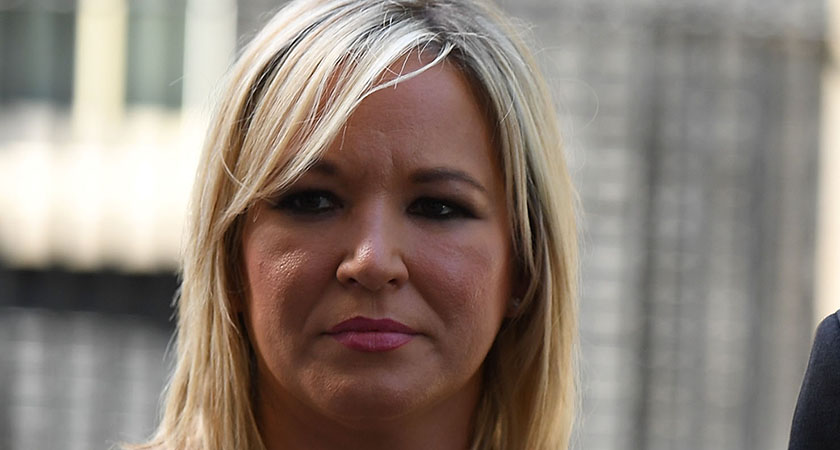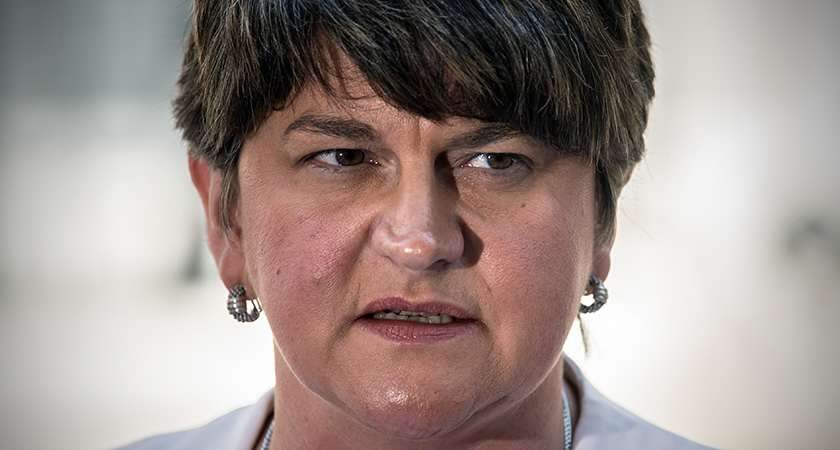THE British Government has said parties in Northern Ireland must return to a power-sharing executive before it reaches a critical point for the North.
Northern Ireland has been without an Executive for the last six months after Sinn Féin and the Democratic Unionist Party (DUP) failed to reach an agreement despite weeks of intense talks.
As no agreement was reached by the June 29 deadline, Secretary for Northern Ireland James Brokenshire said he will now review whether to call a new election.
He said Westminster stands ready ‘to do what is needed to provide that political decision-making in the best interests of Northern Ireland’.
“This hiatus cannot continue for much longer,” he said. “There is no doubt that the best outcome is for a new Executive to make those strategic decisions in the interest of all parts of the community in Northern Ireland. If we don't see resolution, it will become urgent."
 Sinn Féin leader Michelle O'Neill has accused James Brokenshire of pandering to the DUPs. (Picture: Chris J Ratcliffe/Getty Images)
Sinn Féin leader Michelle O'Neill has accused James Brokenshire of pandering to the DUPs. (Picture: Chris J Ratcliffe/Getty Images)He added: “If no agreement is reached, legislation in Westminster may then be required to give authority for expenditure through Northern Ireland departments through an appropriation bill.
"We have not reached that critical point yet, but that point is coming and the lack of a formal budget is not something that can be sustained indefinitely.”
"I am clear that the return of inclusive, devolved government by a power-sharing Executive is what would be best for Northern Ireland.”
Brokenshire's parliamentary address received criticism from Sinn Féin, who accused the Northern Ireland Secretary of 'pandering' to the DUPs.
“He is once again pandering to the DUP’s delaying and blocking of the rights-based issues which are the heart of the current difficulties,” Northern Ireland leader Michelle O'Neill said.
 Arlene Foster has said the onus is on Sinn Féin to form an Executive. (Picture: Carl Court/Getty Images)
Arlene Foster has said the onus is on Sinn Féin to form an Executive. (Picture: Carl Court/Getty Images)But DUP leader Arlene Foster accused Sinn Féin of 'political grandstanding' and said the onus was on the nationalist party to stabilise the Executive.
"When Sinn Féin decided to collapse the Executive in January this year, they had little thought for the health waiting lists, the educational budgets and the community services that relied so much on the money coming from Stormont,” she said.
"Sinn Féin have a shopping list, a shopping list that which seems to get longer every time we meet with them.
She added: ""The onus is really on Sinn Féin now as to whether they want to continue with this political grandstanding or whether they want to get back to doing the work we need to do.”
Sinn Féin MLA Conor Murphy had previously said that the DUPs had not addressed equality and rights issues during talks.
“Nineteen years after the Good Friday Agreement and 10 years on from St Andrew’s the DUP have blocked an Acht na Gaeilge, the Bill of Rights, marriage equality, respect, anti-sectarian measures and progress on legacy issues,” he said.
“The DUP’s anti-equality approach has been emboldened by their alliance with a Tory Government, which has put its own survival first.
Ireland's Minister for Foreign Affairs and Trade, Simon Coveney TD, travelled to Belfast today, July 4, for further meetings with the Secretary of State for Northern Ireland and the political parties.
“Having met the parties and the Secretary of State for Northern Ireland again this morning and talked through the detail of the outstanding issues, it now seems clear that agreement will not be forthcoming this week," he said.
“The Secretary of State for Northern Ireland said yesterday that he stands ready to introduce the necessary legislation at Westminster to allow an Executive to be formed once the necessary political agreement is reached between the parties.
“The Governments can support and encourage but, in the final analysis, it is only the parties themselves that can make an agreement with each other.
"All sides may now wish to reflect on how progress can best be made and I would encourage the parties to maintain dialogue with each other over the coming weeks."

